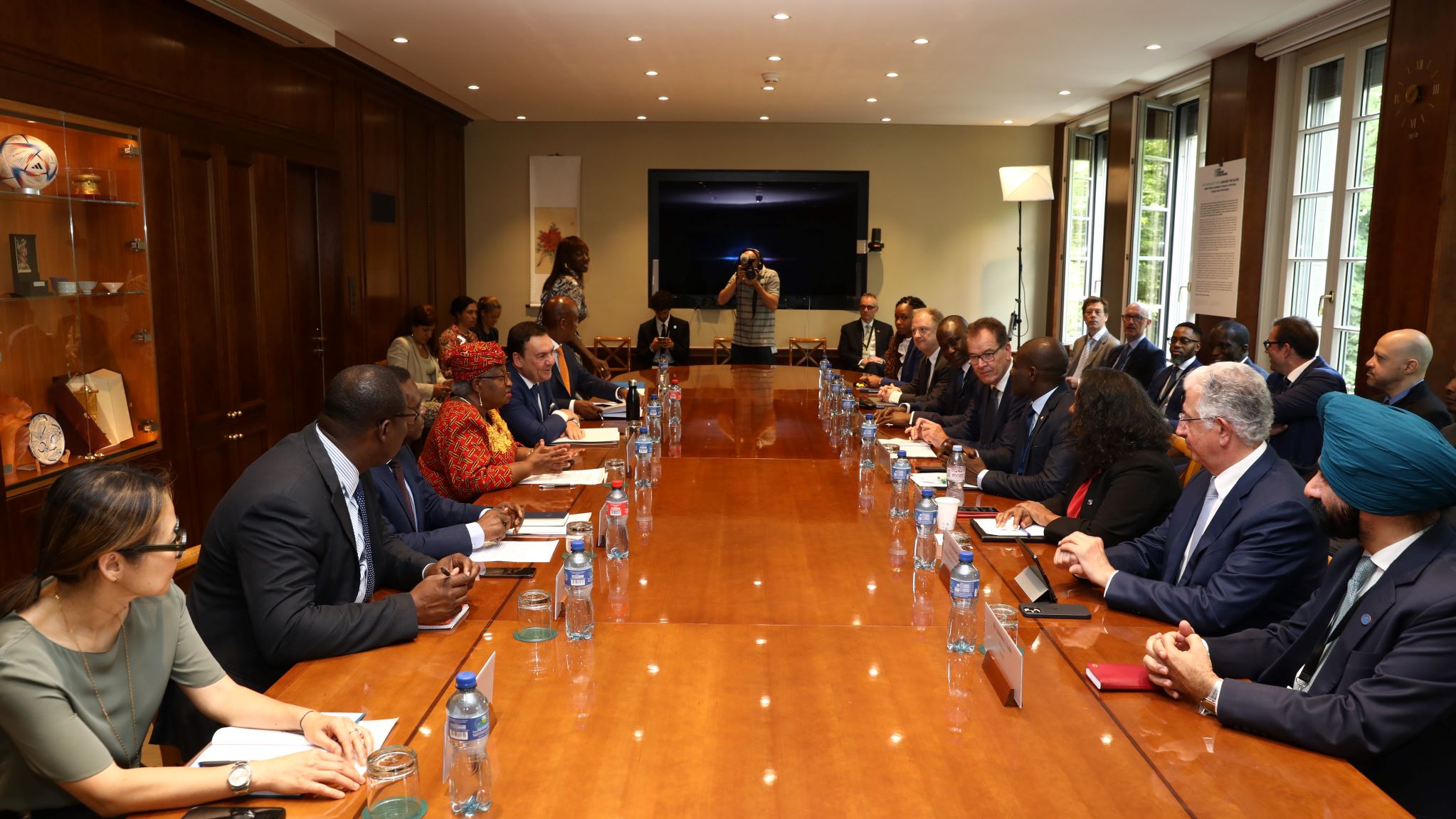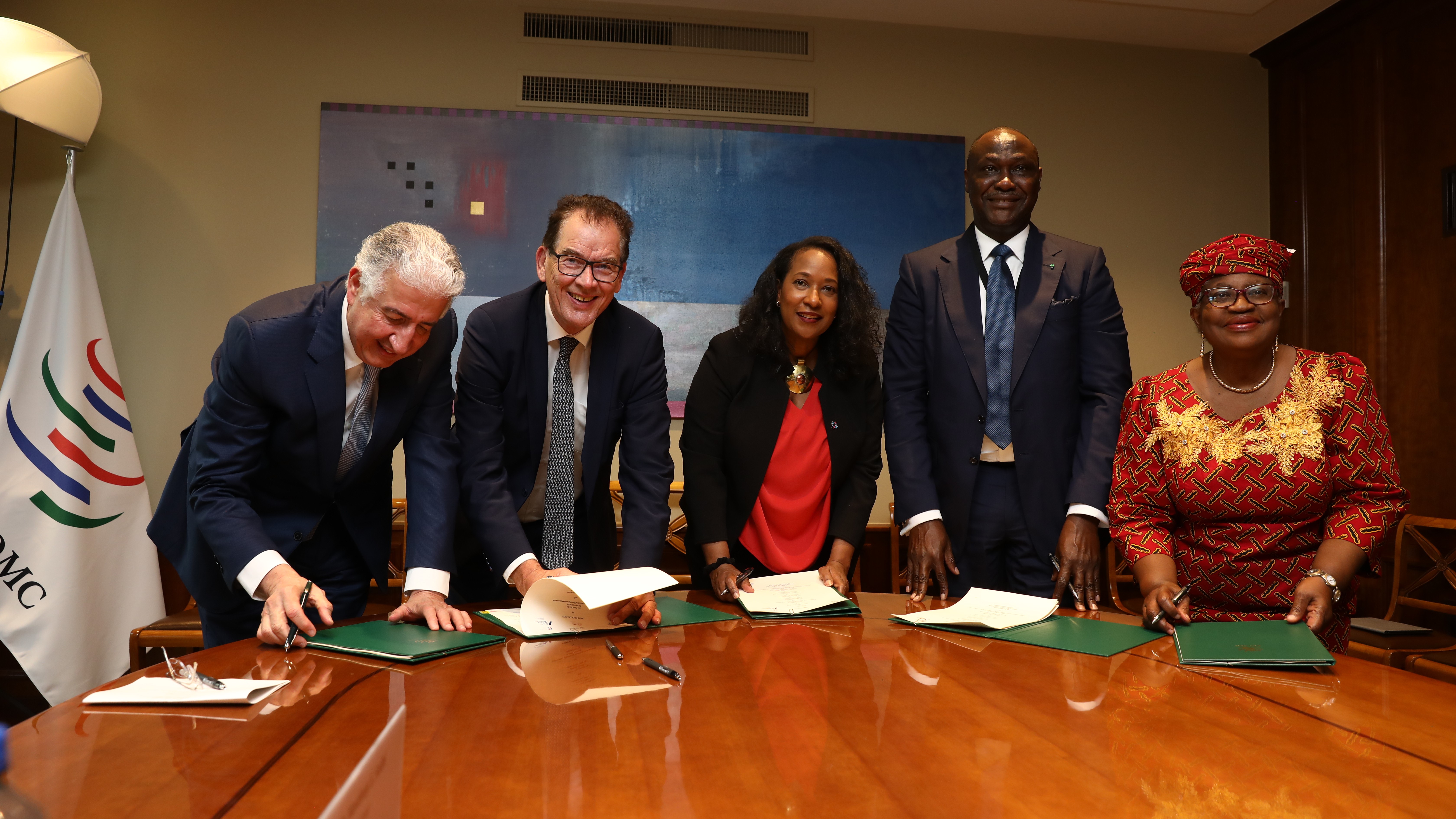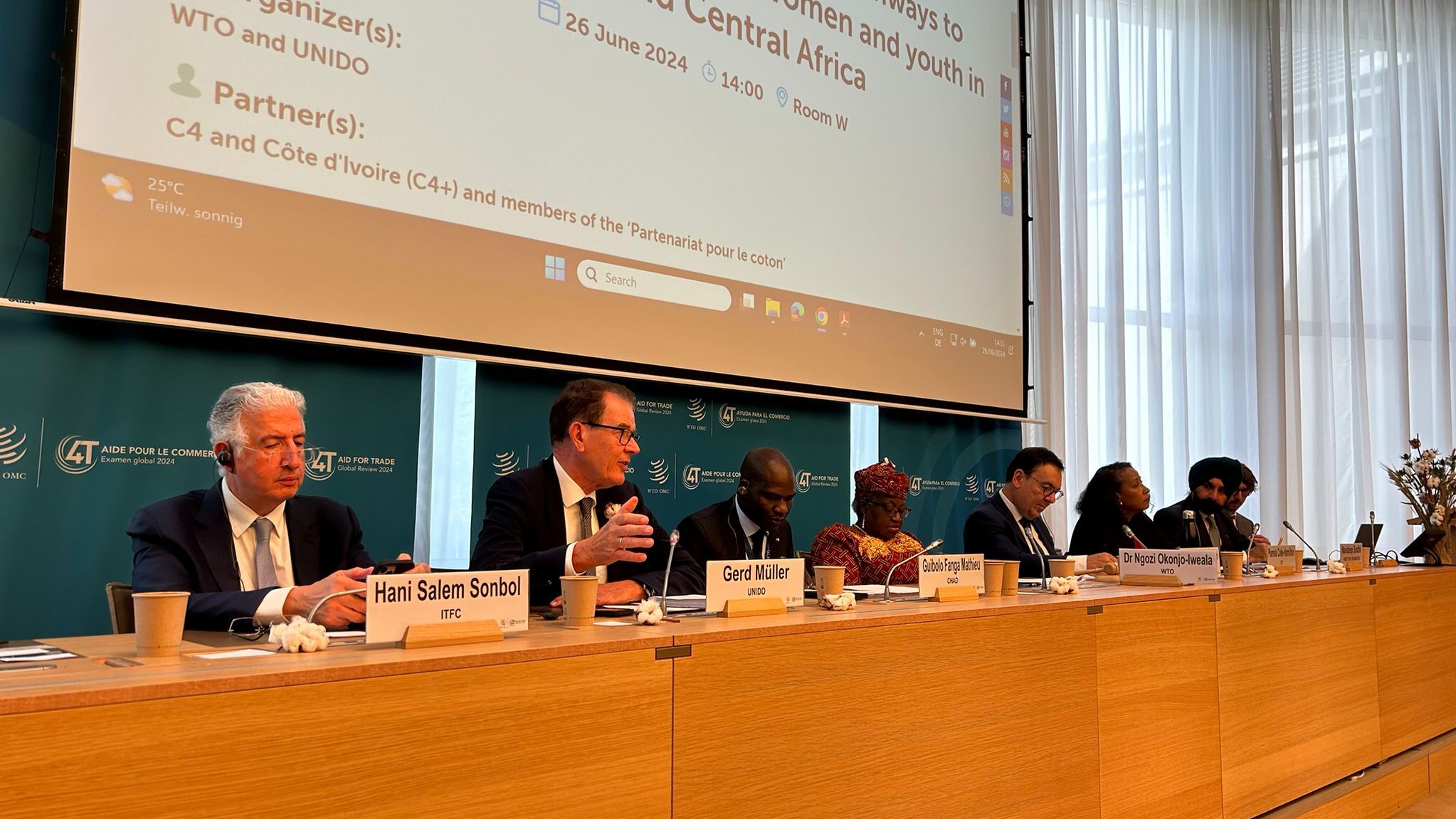

UNIDO and Partners of the Cotton Initiative make strides to mobilize investment for a sustainable cotton industry in West Africa
27 June 2024

Geneva, 26 June 2024 – At the WTO 9th Global Review of Aid for Trade, UNIDO was at the forefront of the Ministerial Dialogue on "Cotton-to-Clothing: Charting Pathways to Create Sustainable Jobs for Women and Youth in West and Central Africa”, part of the Partenariat pour le Coton's ongoing efforts to mobilize resources for West Africa's developing cotton/textile industry. This initiative aims to mobilize $12 billion for the Cotton Four countries (Benin, Burkina Faso, Chad, Mali – or “C4”) and Côte d’Ivoire to support the development of a truly sustainable cotton industry in the region.
A significant milestone in this endeavour was the signing of a Joint Declaration, aimed to galvanize investment financing. It is a collaborative effort between UNIDO, WTO, ITC, and Afreximbank with financial institutions Africa Finance Corporation (AFC) and International Islamic Trade Finance Corporation (ITFC), thus marking a critical step towards realizing the investment needs of the revamped "Cotton Roadmap Initiative".
UNIDO Director General Gerd Müller: “Our shared goal is fair and sustainable local cotton processing to create decent jobs and economic growth in the region. We at UNIDO offer our expertise to bring more local value addition in the cotton sector and support the development of a truly inclusive and sustainable textile industry. What we need is to also work towards establishing a ‘blue button’ seal to promote sustainable and fairly produced textiles around the world. We must fundamentally rethink how our economies and our global supply chains work and create a fairer globalization that benefits all.”
WTO Director General Okonjo-Iweala: “West Africa stands at the cusp of a once-in-a-lifetime opportunity in the cotton and textile industry. I am happy with Gerd Müller of UNIDO and ITC and others as we are working to try and help them [Cotton Four] develop the cotton value chain in the countries.”


The Cotton-to-Clothing panel assembled representatives from the private sector, development finance institutions, and development partners and was moderated by WTO Deputy Director-General Paugam, with interventions from WTO Director General Ngozi Okonjo-Iweala, UNIDO Director General Gerd Müller, ITC Executive Director Pamela Coke-Hamilton, Chad's Minister of Trade and Industry Guibolo Fanga Mathieu, CEO of the International Islamic Trade Finance Corporation (ITFC) Hani Sonbol, and President of Africa Finance Corporation (AFC) Samaila Zubairu, as well as a presentation on the Baseline Study of Cotton-to Textile/Apparel Value Chain Development in the C4 and Côte d’Ivoire by Gherzi Textil Org Switzerland CEO Navdeep Sodhi.
The involvement of financial institutions will be critical in improving access to energy and skill enhancement, while aiding in infrastructure projects, facilitating trade and unlocking investment opportunities essential to developing the cotton-to-textile/apparel value chain in West and Central Africa.The signing of the Joint Declaration was a pivotal step towards mobilizing the required investment financing.
About Partenariat pour le Coton:
‘Partenariat pour le coton’, launched in February 2024 as the result of an innovative partnership between the WTO and FIFA. It brings together stakeholders including WTO, FIFA, UNIDO, ITC, Afreximbank, ILO, IAEA, the International Cotton Advisory Committee, the Better Cotton Initiative, the Cotton Made in Africa (“Partners”). Together as the Partnership, they support African cotton producing countries to integrate into regional and global markets, increase local processing for value addition, and thereby create more decent jobs to benefit local communities.